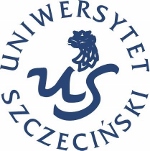Studies and researches
Vol. 13 Issue 2 - 12/2021
Energy Consumption in Assessment of Shadow Economy
The
article deals with study of the relationship between energy consumption and the
level of the shadow economy. Based on the comparison of average rates of
renewable energy consumption and the shadow economy per capita of EU countries
and Ukraine for the period 2005–2016, the authors distinguish clusters of
countries by the nature and direction of the relationship between the analyzed
indices. The study of these relationships is based on the linear relationship
concept between the shadow economy and energy consumption. The EU countries and
Ukraine are identified as the statistical base of the study and the assessment
period is 2005–2016. The results confirm the hypothesis of the shadow economic
activity impact on energy consumption and prove their dependence on the
scientific and technological progress in the country. All indices are
statistically significant at the level of 1% and 5% and 10% respectively. This
research let the authors conclude that it is necessary to take into account the
energy consumption volumes in the process of estimating the shadow economy
under the influence of innovative technologies and processes. Empirical
calculations have proved the high level of the shadow economy in the vast
majority of European Union countries, the average value of which is 22%.
Read more
Keywords:
sustainable development, shadow economy, energy consumption, money laundering
JEL:
E60, C23, E63
sustainable development, shadow economy, energy consumption, money laundering
JEL:
E60, C23, E63














